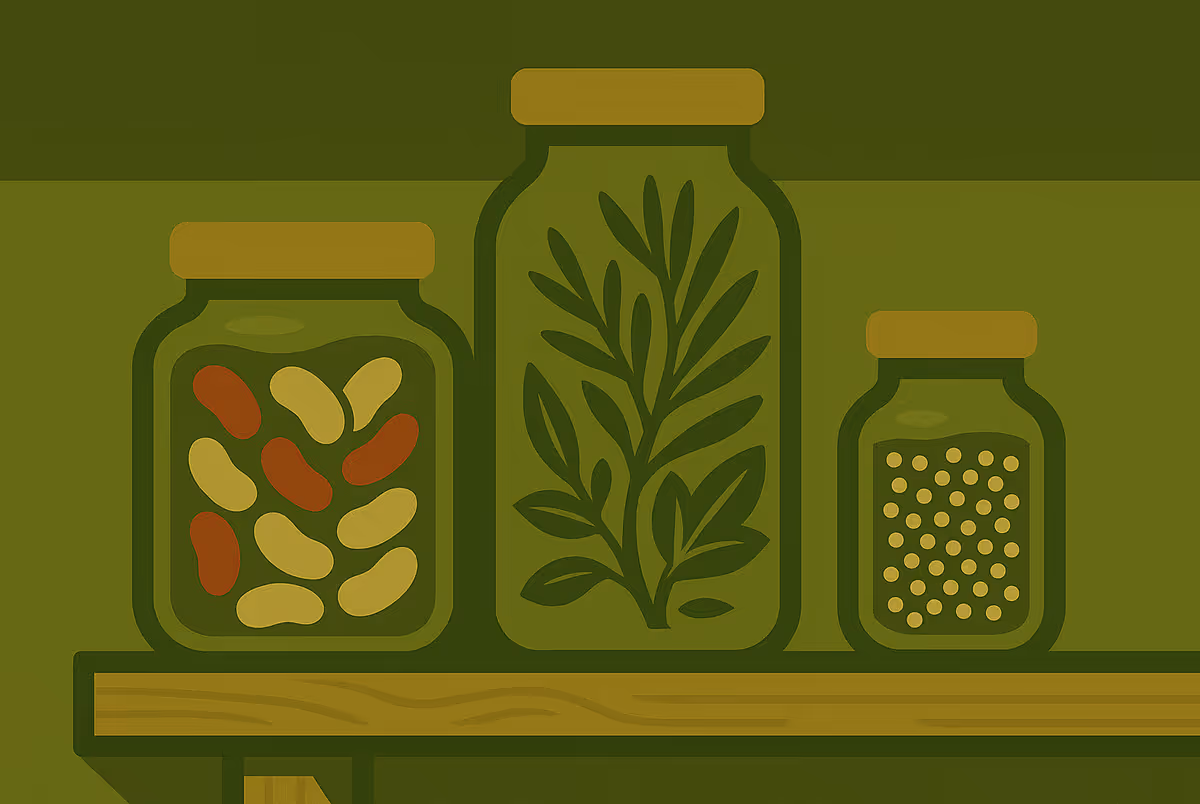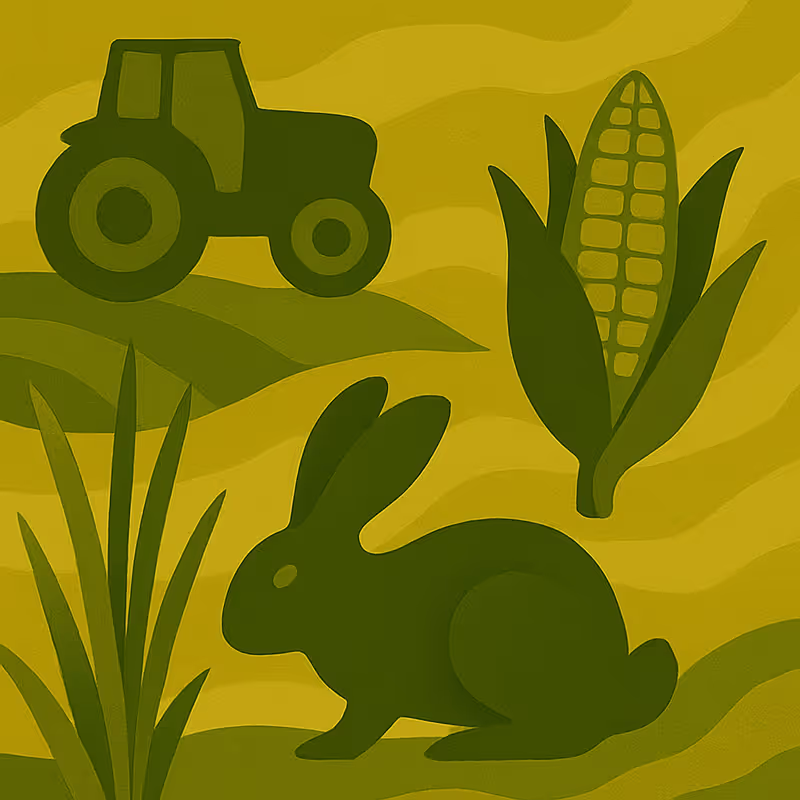Learning objectives:
- Define in your own words what food sovereignty is, and its key principles: commons, diversity, and solidarity
- Connect food sovereignty with broader frameworks for systemic change, such as IPBES’s leverage points
- Explore local and global examples (e.g. seed saving, community-supported agriculture) that embody food sovereignty in action
What is food sovereignty?
A profoundly different approach to food systems, that puts people’s wellbeing in balance with nature, is proposed by the transnational peasant movement, La Via Campesina, under the name of food sovereignty, in resistance to the trends of the current industrial food system.
According to La Via Campesina, food sovereignty refers to ‘the right of peoples to healthy and culturally appropriate food produced through ecologically sound and sustainable methods, and their right to define their own food and agriculture systems’ (La Via Campesina, n.d.).
Food sovereignty has grown into a ‘movement of movements’, bringing together peasants, Indigenous peoples, farmers, women and youth groups, civil society, researchers, and others fighting for climate, racial, gender and social justice (Pimbert, 2025).
Its vision is of a multitude of thriving, autonomous, more localised food systems, coexisting and supporting each other, underpinned by agroecological practices.
Grounded in ecological, social, and cultural values, food sovereignty already reflects the kind of deep transformation IPBES calls for to halt biodiversity loss. This vision rejects the pursuit of endless economic growth, instead centring autonomy, justice, and care for nature, underpinned by a much more participatory form of democracy. All people, especially those traditionally excluded from decision-making on food, such as peasants, pastoralists, fisherfolk, women, youth, and Indigenous peoples, must be able to co-create their own food systems rather than be forced into the industrial global model (Pimbert, 2025).
Here’s how the two visions connect:
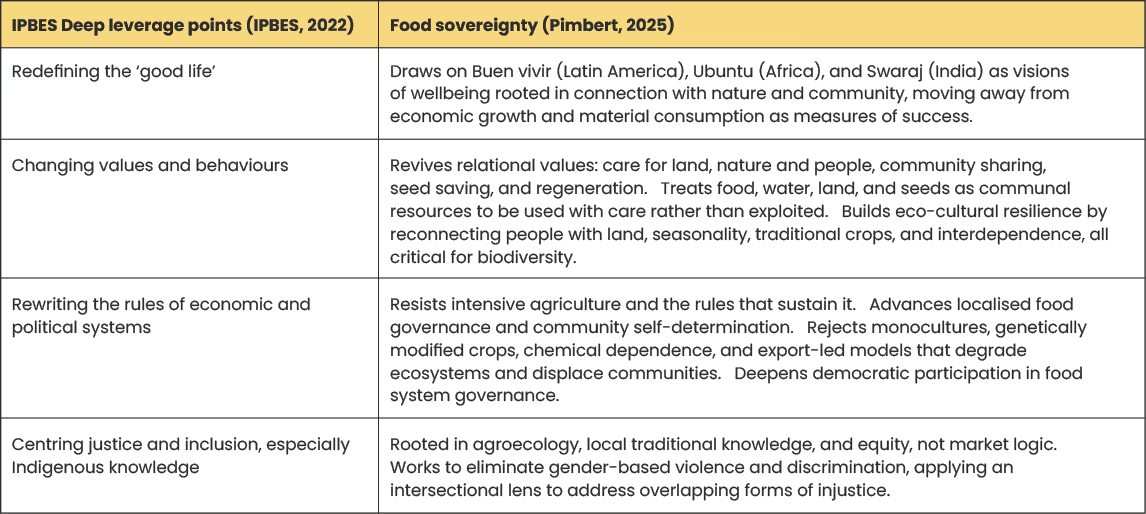
The principles of food sovereignty
Food sovereignty prioritises local and national production and economies in line with three key principles: commons, diversity, and solidarity (Gutierrez Escobar, 2019).
5.2.1 Commons
A commons refers to the process where a community uses and takes care of a resource collectively, as a common good, and according to an agreed set of rules.
Open pollinated seeds used to be a commons that anyone could collect, use, sell and exchange freely.
In recent decades, agribusiness turned seeds into a source of profit by creating hybrid or genetically modified seeds that have to be purchased on a yearly basis, alongside chemical pesticides and fertilisers (Navdanya, n.d.).
Yet, open pollinated seeds are able to better adapt to local conditions, and are more resistant to adverse weather, pest or disease. Even in years with adverse weather, open pollinated diverse varieties give some produce.
The practice of saving and exchanging open pollinated seeds is reviving all around the world, in rural and urban areas, through associations, traditional farmers, passionate amateurs, urban farmers or simply people who grow food on their balconies or in city gardens. People collect the seeds from their healthiest and most delicious produce and save them for next season. They exchange their seeds with the local community or beyond.
Saving and improving seeds over generations leads to heirloom seeds. Through seed saving, the highly creative and adaptive nature of plants is preserved and enhanced.
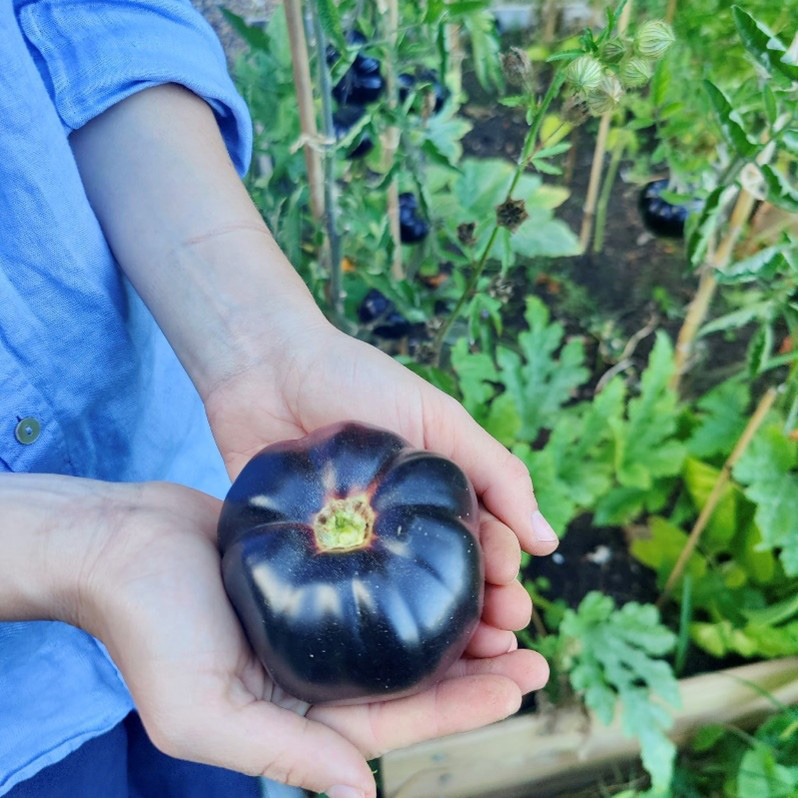
5.2.2 Diversity
In reaction to the homogeneity (cultivation of a few select crops) and intensity of the industrial food production system, food sovereignty protects and promotes agrobiodiversity, but also diversity in knowledge applied to agriculture, and the diversity of ways to produce and procure food.
Diversifying crops will increase agricultural productivity as well as support local nature and biodiversity (Benton, et al., 2021).
Through using diverse local crops, polyculture (planting several species rather than a single one), intercropping (planting a few species together so they complement each other), we can work with biodiversity, rather than against it.
Mini-project
Prompt: Pick up a vegetable and go to a local supermarket: how many different varieties of this vegetable can you find? Compare that with this catalogue of open-pollinated, organic seeds which contains the richest collection of such seeds in Europe.
For example, there is one single variety of aubergine at my local supermarket, whilst there are three full pages of wonderful aubergine varieties in the catalogue (from p. 35).
Take a bit of time to enjoy the beauty of biodiversity throughout the catalogue, and order some interesting seeds if you feel inspired to grow some fun varieties that you will not find at the supermarket!
If there are more seeds than what you can sow in a packet, it’s always nice to share some with friends or neighbours.
Food sovereignty also promotes the diversity of knowledge in agriculture. The traditional knowledge of small-scale farmers and Indigenous people is not less important than modern scientific principles.
For example, various Indigenous peoples in North America have long planted the ‘Three Sisters’ together: corn, beans, and squash. For the Iroquois people, the Three Sisters are the ‘physical and spiritual sustainers of life’ (USDA National Agricultural Library, n.d.).
Scientific research has also documented the ecological benefits of this practice. The three crops support each other: corn provides a stalk for beans to climb, beans fix nitrogen in the soil, enriching it for the corn and squash, and squash leaves provide ground cover, suppressing weeds and retaining moisture.
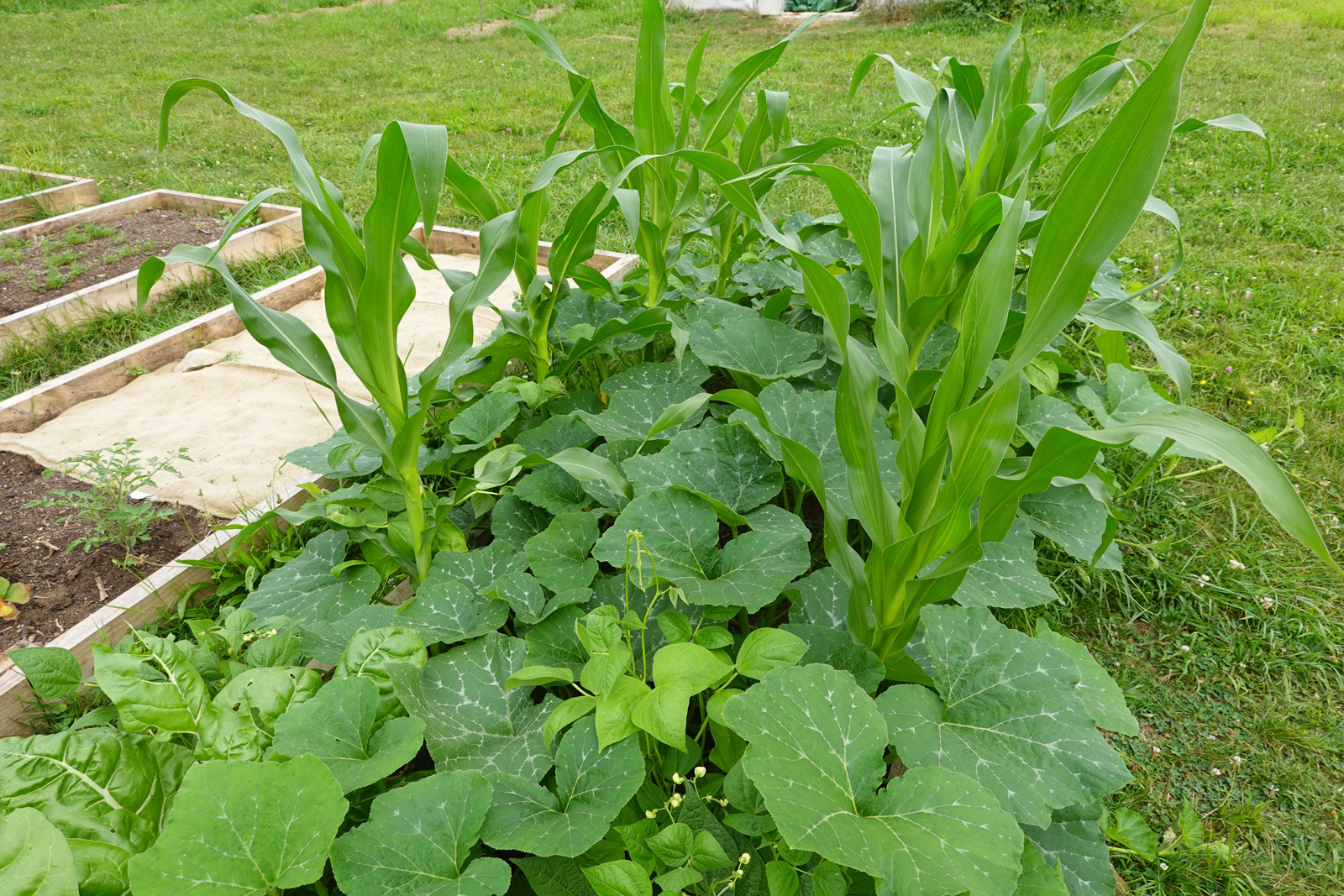
A diversity of labour practices is crucial to ensure the wellbeing of farmers around the world, and the resilience of food systems.
Small-scale farmers tend to have intimate knowledge of local areas, land, climate, and plant varieties, and tend to be more productive and biodiversity-friendly on average than large farms (Ricciardi, et al., 2021).
Community supported agriculture or CSA is a rising agricultural model where farmers and consumers share the benefits and the risks associated with food production.
Watch this short video (2’) explaining what CSA is. Would you participate in such an initiative where you live or come from? Do you think it would benefit local farmers and communities?
Food sovereignty also invites us to diversify the ways in which we procure our food. If it’s possible, instead of buying all our food from a few supermarkets, we could buy part of it from smaller markets or directly from farmers. We could grow some food ourselves on balconies, in (community) gardens or simply in a pot in our flat. We could have some meals communally in community kitchens, or with friends or neighbours. We can also sometimes give and accept food for free.
Reflection (3’):
Prompt: When was the last time you had food that you didn’t pay for? Where did you get it from? How did it feel? Do you think such exchanges outside monetary exchange are important, and why?
5.2.3 Solidarity
Food sovereignty promotes solidarity between food producers, and among food producers and consumers around the world. It is crucial to ensure small-scale farmers can lead an independent life and earn a fair income from the essential work that they carry out.
There is also a dimension of solidarity with future generations whose access to the commons - plant varieties, land, water, biodiversity, the atmosphere - should be preserved so that human life itself can be sustained (Gutierrez Escobar, 2019).

Seeds without Borders – solidarity in practice
The French association Kokopelli is dedicated to preserving and promoting open-pollinated seed varieties. It collaborates with seed producers across Europe and North America, to distribute hundreds of heirloom varieties each year, while organising public events such as seed fairs and awareness campaigns.
In 2002, Kokopelli launched their international solidarity programme ‘Seeds without Borders’ to challenge the dominance of industrial seed systems in the Global South.
This solidarity-driven initiative promotes the principle of seeds as commons by providing free, open-pollinated seeds to farmer communities displaced or marginalised by hybrid and patented, genetically modified seed regimes.
Farmers regain the right to choose, save, adapt, and share seeds, undermining corporate control, whilst reviving agrobiodiversity, essential for ecosystem resilience.
More than a ton of seeds has been distributed through this programme, enabling farmers to reclaim agricultural autonomy and revive local food traditions.
What can Ubuntu teach us about community and food?
Reflection (20’)
Prompt: Watch the 9-minute video below on what we can learn from the African philosophy of Ubuntu and reflect on the following questions:
- Ubuntu can be translated as ‘I am because you/we are.’ What does this philosophy teach us about community and responsibility, especially in relation to food systems and biodiversity?
- Can you think of or find local cultural traditions or proverbs that emphasise community, or harmony with nature, or honour food, where you live or come from?
- How can these teachings be brought into classroom learning and food-related education?
- Ubuntu is rooted in caring, sharing, warmth, and dignity for all. How might planning a communal meal or working on a garden foster these values in learning spaces?




